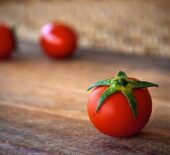You have likely heard of the term antibiotic resistance. Antibiotics are a type of medicine which treat bacterial infections. Their use may seem harmless, but this is far from accurate. The misuse of antibiotics e.g. for viral infections and overuse are the cause of many cases of antibiotic resistance.
Antibiotic resistance is when the bacteria change and no longer are killed by the antibiotics. These bacteria can then multiply and increase the degree of antibiotic resistance. With increased antibiotic resistance it can make it more difficult to kill the bacteria infection. This can lead to increased illness duration or even death. In 2019 it was estimated than four point nine five million deaths were due to antibiotic resistance.
Your gut microbiome houses the microbes which either promote or inhibit your health. This includes the types of bacteria which can become antibiotic resistant. Exciting new research proposes the role of dietary fibre to reduce the number of bacteria which are resistant to antibiotics.
Two hundred and ninety healthy people which included both men and women, aged between eighteen to sixty-six years were selected to be included in this cohort study. Researchers took a twenty-four-hour dietary recall as well as used food frequency questionnaires to determine the diet of the participants. Also, a sample of the genes present in the gut microbiome of the study participants were taken from a stool sample. Blood, and urine samples were also taken.
Researchers found that the genes for antibiotic resistance greatly differed between individuals. The most common occurring antibiotic resistant gene within the cohort was aminoglycoside-O-phosphotransferases.
It was found that those participants with less antibiotic resistant genes included greater amounts of soluble fibre in their diet. Additionally, a diverse diet which included less animal protein particularly in pork and beef animal proteins, and high in fibre was linked to lower antibiotic resistance genes.
Researchers proposed these dietary factors created gut microbes which grow without the presence of oxygen called obligate anaerobes. When more of these types of microbes are present it reduces the ability for types of microbes which can survive in the presence of both oxygen and without oxygen called facultative anaerobes developing. Facultative anaerobes are known to be the types of microbes which develop antibiotic resistance. This new research may provide a dietary strategy to reduce the likelihood of antibiotic resistance occurring and improve the health of millions of people.
Plant foods contain a variety of different types of fibre including soluble fibre. This is why structuring your eating habits to include around half plant-based foods is a key to optimising your health in many ways. Plant based foods include wholegrains, legumes, beans, nuts, seeds, fruits, and vegetables. To create the healthiest gut microbiome possible a recommended lifestyle goal is to include thirty different plant foods a week.
Take home message: Your gut microbiome is a key component of your health. The types and variety of microbes which create your gut microbiome dictate your health status. To promote health in multiple ways and reduce your likelihood of developing bacteria which are antibiotic resistant remember to love your plant-based foods!
References:
- Oliver A, Xue Z, Villanueva YT, Durbin-Johnson B, Alkan Z, Taft DH, Liu J, Korf I, Laugero KD, Stephensen CB, Mills DA, Kable ME, Lemay DG. Association of Diet and Antimicrobial Resistance in Healthy U.S. Adults. mBio. 2022 Jun 28;13(3):e0010122. doi: 10.1128/mbio.00101-22. Epub 2022 May 10. PMID: 35536006; PMCID: PMC9239165.
- Antibiotic Resistance. Medline Plus Trusted Health Information for You. https://medlineplus.gov/antibioticresistance.html
- Antibiotics: When you need them and when you don’t. UT Southwestern Medical Centre. https://utswmed.org/medblog/antibiotics-resistance-proper-use/
- Antimicrobial Resistance Collaborators. Global burden of bacterial antimicrobial resistance in 2019: a systematic analysis. Lancet. 2022 Feb 12;399(10325):629-655. doi: 10.1016/S0140-6736(21)02724-0. Epub 2022 Jan 19. PMID: 35065702; PMCID: PMC8841637.








